
This review may contain spoilers
You do not want to catch this rainbow
"Why must humans be so greedy?" Gamera vs Barugon brings that harsh lesson into focus showing how human greed causes as many problems as giant Kaiju.At the end of the original Gamera, the giant turtle was enclosed in a capsule and launched into space. This movie picks up with a meteor cracking open the ship and Gamera spinning his way home to Earth where he caused some damage feasting on hydroelectric power from a dam.
After Gamera takes off to parts unknown three men travel to New Guinea to retrieve a giant opal left hidden in a cave from WWII. The natives try to warn them off but they won't hear of it. Death and betrayal follow which is why we can't have nice things. The opal, as any Kaiju fan will have figured out by now, is an egg, not a stone. Next thing you know Barugon is on the loose with his giant tongue (whole new meaning to the term tongue lashing!), glowing tines on his back and a giant rainbow ray of death you do not want to catch. Gamera shows up and takes quite a beating from the new kid in town.
The humans, including a repentant thief and the native girl who came with him to Japan seek to stop Barugon. One of the other thieves cannot except the loss of the jewel and goes on a murder spree. As usual, most of their efforts are thwarted because this is Gamera's movie, not theirs, and it's up to him to have the marquee fight.
Though the movie starts slow, the humans are among the most interesting of any Kaiju movie. Hongo Kojiro made a believable humbled man trying to undo his mistake, knowing it would be impossible to repay the lives lost. Fujiyama Koji played the greedy and villainous thief well. Let's just say his character got the tongue lashing he deserved by human and Kaiju alike.
I didn't care for the original Gamera but his second outing was much more enjoyable and well done. It helped that there wasn't an annoying child talking about turtles non-stop. This Gamera was dark and excluding the usual Kaiju pseudo science, fairly coherently and cohesively written. It was beautifully shot and the fights were well done considering they were guys in cumbersome rubber suits. For a 1966 movie about a big turtle that can fly you couldn't have asked for much more.
(As usual these old niche movies are graded on a curve)
10/20/22
Was this review helpful to you?
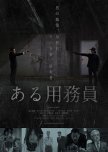
This review may contain spoilers
First come, first served or first killed, whichever comes first
A shy assassin assigned to guard a yakuza's teenage daughter finds himself in the middle of a revenge fueled war that takes place in a nearly empty school. Undercover as A Janitor, he ends up having to clean up more than empty juice boxes.Fukima Akira saw his father murdered when he was just a boy. His father's blood brother, Majima Yoshiki, took him in as a son and trained him to be an assassin. Majima's biological son, Honda, grew up to develop his own gang to oppose his father. Eventually, Akira finds out that Yoshiki had his father murdered so that he could take over the gang and honor dictated Akira now had to murder his father figure. Other leaders were involved, including Honda, because everyone wanted to take over Yoshiki's turf. Yui, the daughter, was needed to biometrically open the vaults thus creating the deadly situation at the school with only Akira between her and 9 assassins.
The film bordered on the absurd at times with a baby faced serial killer, two female high school assassins, a geriatric assassin, two bozo bro assassins and one that resembled a terminator. Some of the acting could be over the top. Honda, looked like an IT specialist, but what he specialized in was killing, especially his own men. I kept expecting to hear him say, "have you tried turning it off and turning it on?" This was a kill or be killed free for all, where the only ones who would be paid were the ones who completed the job first. First come, first serve. What the assassins learned the hard way was that the gentle spoken janitor had no intention of letting anyone collect a pay day.
A Janitor (the most commonly used title name) looked like it was cheaply made. The school shots were that blown out blue/gray and white that many Jdramas seem fond of. Scenes with Yui and her father having dinner, steak of course, murderous villains tend to like their rare beef, were tinted red.
Some of the scenes were gratuitous in nature, and fair warning, there were a few random high school kids murdered. At times the fighting seemed brutal and real at others times it could seem ludicrous. Suppressing fire is one thing, wasting bullets shooting at something you can't see when you have limited ammo is something else, something stupid. Speaking of stupid, if you have an amazing hiding place don't crawl out in front of the villains in plain sight.
The acting was all over the place. Fukushi Seiji did a fine job as the conflicted and loyal Akira. Imou Haruka asYui had the tough task of playing the high school girl getting dragged all over the place with little agency of her own. Most of the rest of the cast set their acting on crazy overkill.
Despite the limited acting and sets, the movie was entertaining at times. Like a Godzilla movie, the monster didn't show up until 40 minutes into the story, at which point the action began and it became more interesting. Ultimately, a cute assassin wasn't enough for me with the huge gaps in logic though. The film is part of the Baby Assassins world which I know nothing about. So if that franchise is something you enjoyed or you like yakuza assassins pummeling and shooting each other, this might be something to try. It is thankfully as short as much of the logic in the movie, clocking in under 90 minutes.
9/26/22
Was this review helpful to you?

I fell in love with the beautiful people, sets, costumes, music, and story. Like a first love I was reckless and slept very little, unable to tear myself away.
It had everything I wanted in a first love-passion, true love, unrequited love, revenge, danger, obstacles to overcome, character growth, monsters, and magic. My first love had some flaws but through the eyes of love I overlooked them.
The actors brought the characters to life and pulled me into another world.
The music enhanced the story without distracting from it, a romantic mix-tape for an epic love story.
The next few dramas I watched were unworthy of my love and left my heart cold, but because TMOPB had taught me how to love I kept my heart open and kept searching. I have only truly loved one other time but I have loved and liked many others.
I have revisited this love many times, unable to completely let go. All other loves are measured against this one. I am so thankful for the worlds this drama opened up for me.
Was this review helpful to you?

"Stay broken, that's normal for you"
A Man of Reason had a strong cast that was dragged down by a generic story filled with coincidences and tropes. Jung Woo Sung and Kim Nam Gil endeavored to breathe life into the bland script with mixed results.Soo Hyuk is finally out of prison after 10 years. He has no desire to return to his criminal life, especially after he discovers he has a daughter. Chairman Park Eung Kook isn’t ready to let go of one of his best men and sends his minion Kang to observe him. Kang takes matters into his own hands and hires “The Washer” to take Soo Hyuk out. Things don’t go as planned when Soo Hyuk’s daughter is kidnapped.
The biggest problem with this film was that director and writer Jung Woo Sung employed tropes that were stale by the year 2000. Execution is all important when treading over old ground. It felt like he attempted to integrate elements from The Joker by having a psychotic killer and his even crazier moll stir things up. The overuse of explosives and an amusement park hideout were a little too on the nose. In the end, none of the characters were developed enough to care about.
Jung and his deep voice made for a believable reformed criminal if not a particularly menacing one. Kim Nam Gil brought the crazy as the sinister “Washer.” He also provided much needed comic relief. Disappointingly, Park Sung Woong and his long-haired wig only dropped by for a small supporting role. The Big Bad ended up being a whiny, incompetent, and jealous assistant. Kim Joon Han didn’t have the screen presence to pull off this poorly drawn character.
A Man of Reason had well-choreographed fights and car chases even when they veered into incredulity. Fans of Jung Woo Sung and Kim Nam Gil may enjoy watching these two spar and banter. Unfortunately, that’s about all Jung’s directorial effort offered.
27 November 2024
Was this review helpful to you?
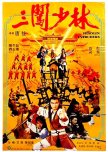
"Repent and turn back!"
Prolific martial arts director Tang Chia/Tong Kai only directed three movies. Having just finished watching Shaolin Intruders, I’ve now completed all three. Hard to believe Shaw Brothers only used him a handful of times as I enjoyed all three of his films. He utilized several well-known martial arts directors for this kung fu lollapalooza with deception, revenge, and secret identities galore!Buddies, perhaps frenemies, Lei Xun and Qiao Yi Duo come to the aid of pretty acquaintance Ye Qing Hua when she is accused of murdering 2 of the 4 most powerful clans. Xun and Yi Duo discover evidence that fighters trained at the Shaolin Temple are the culprits. In order for Qing Hua to be allowed to identify the intruders she witnessed, the two men must pass three tests. When it seems the mystery is solved, the two heroes realize it might not be as simple as it seemed.
Tang Chia and Shaw Brothers brought in numerous stunt men and actors capable of stunt fighting. The six martial arts directors utilized numerous styles, creative weapons (bolo dice!) and formations to keep the action rolling, stacking, and flipping from opening credits to ending ones. Every clan chief had their own men and the Shaolin Temple was staffed well, too.
With the exceptionally large cast of bit players, you know to expect a similarly large body count.
Derek Yee played the stern and earnest swordsman while Jason Pai Piao turned on the charm as his gambling and vivacious partner. Phillip Ko Fei brought the kung fu know-how and speed as the Big Bad. Lau Yuk Pok who only worked in 10 films before retiring played Ye Ching Hua. She held her own, though one of Shaw’s other more established actresses might have given this role the darkness it needed. Ku Feng, a regular Shaw Brothers contract player, made an appearance as one of the doomed Chiefs.
The story was rather thin with just enough substance to tie the numerous fight scenes together. Jason Pai’s Yi Duo kept things lively and entertaining. Phillip Ko Fei often played smaller roles and it was nice to see him in a weightier one. The SB sets and costumes were always more opulent than their Taiwanese competitors and a multitude of stuntmen flipped, flew, and lunged through the walls and railings to sell the action. If you enjoy old kung fu films this is one to try. As always, I grade these cheap, niche, films on a curve.
26 November 2024
Trigger warning: Snakes. Lots of snakes.
Was this review helpful to you?

Ah Ching, Ah Jung, and Kao Tzu spend most days drinking, playing pool, playing pranks and getting in fights. Ah Ching’s mother is constantly criticizing him hoping to set him straight. When the boys have a brush with the law they travel to Kaohsiung for work. They are looking for independence and new experiences before they are called into military service. Hsiao Hsing is their cute neighbor with a sleazeball boyfriend who is stealing from work. Ah Ching begins work at the factory where Hsiao is employed while the other two friends seek alternative income sources that puts a strain on the friendships.
I enjoyed this film more than some of Hou Hsiao Hsien’s other films. The characters weren’t as remote and unknowable as in his later films. Ah Ching was relatable and despite his poor behavior in his hometown, he was more sympathetic than the other two boys. The teens went from being cocky fish in a small pond to insignificant fish in a big pond. They weren’t well educated and lacked marketable skills. All three faced uncertain futures and were still learning who they were as young men. Complicating things, it was the time of life when relationships were made and broken with friendships in flux.
The Boys from Fengkuei was an entertaining slice of life film more about the experience of watching it than any sort of compelling plot. It evoked emotions of a last summer vacation before adulthood kicks in and wanting a little romance and adventure, but not knowing how to manifest either.
18 November 2024
Was this review helpful to you?
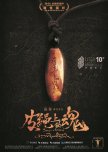
"Men like us don't deserve a woman"
Soul on a String was an unusual combination of cyclical revenge and spiritual journey, fantasy and reality. Somehow, it worked…for the most part. Beyond the story and acting the breathtaking scenery of Tibet starred as the main feature.“Treasure your new life and be kind to all.”
After he kills a deer, Tabei finds a sacred stone in the animal’s mouth. Lightning promptly strikes him. He is revived by Buddhist monks and the Incarnate Lama Zatroe. Because the holy Tibetan treasure chose Tabei he is tasked with delivering it to the Palm Print Land. Tabei will also be given the chance to redeem his sins and awaken his soul. Along the way, Tabei reluctantly ends up traveling with a female sheepherder and a small, mute boy. Hot on his trail are an enigmatic cowboy, two vengeful brothers, and numerous shady men who desire the priceless stone.
“The distance is under your feet and the road is on your back.”
Soul on a String felt like a cross between fairytale and reality. It could be hard to tell where the lines between the supernatural and natural crossed. More than one mystical being guided the characters to where they needed to be. While there were plenty of people who wanted to rob or murder Tabei, this was not an action film. The cyclical nature of revenge did take center stage though. Two brothers spent their lives hunting Tabei because his father killed their father in a fight. One brother killed several men named Tabei during his relentless search creating new enemies for his family. Though Tabei understood the brothers’ need for vengeance, he’d never even met his deceased father yet still was held responsible for his actions. As Tabei crossed the endless landscape in front of him with two people who cared for him, he began to gain some introspection and appreciation for life. All life.
“With a snap of my finger, I can take all of you out of this universe.”
Most of the actors gave natural performances, nothing too complex or nuanced. Without a better working knowledge of Tibetan Buddhism there were a few elements in the story that were somewhat confusing to me, but most of the story was easy to follow. The timelines were fluid and didn’t always move in a linear fashion. Because much of the action took place in the vast, scarcely populated areas of grasslands, desert, and mountains, where a person could die of thirst or hunger, something as simple as a Walkman seemed anachronistic. The cinematography showcased extraordinary landscapes that often competed with the actors for attention.
Soul on a String explored the useless blood feuds that destroyed the next generation’s lives and created more feuds for the continuing generations. Without being heavy-handed Tabei gained his redemption arc, step by agonizing step. Accompanied by a woman who cared for him whether he liked it or not and a pint-sized supernatural helper whether he liked it or not. I freely admit I may have rated this film too high, redemption stories are like catnip to me. 7.75 rounded up to an 8, on another day it might be a 7.5
“To turn spiteful curses into forgiving smiles
Let me understand others
Without asking to be understood
Let me love others
Without asking to be loved.”
18 November 2024
Was this review helpful to you?

"Those who survive, keep thinking about the dead"
Drive My Car was a slow, agonizing, peeling away of emotions and denial, much of the revelations taking place in a red 2-door Saab. “Uncle Vanya” by Anton Chekhov served as therapist, burrowing into the actors and revealing buried questions and regrets.“What should I do about my life and love?”
Yusuke and Oto have been married for 20 years. After the death of their daughter a decade before the light went out of their lives. Oto is a screenwriter who uses sex as a muse and to fill the emptiness inside her. Yusuke left television acting and now works in the theater. All is not as blissful as it seems between the two when tragedy hits. Two years after Oto’s death, Yusuke travels to Hiroshima to direct his version of “Uncle Vanya” that is a multi-lingual production. He is famous for his interpretation of Uncle Vanya but after Oto’s death he’s been unable to process the emotional anguish of the challenging part. The Festival director insists that he have a driver and assigns a young woman to transport him while working on the play. His driver, twenty-three-year-old Misaki, quietly carries her own burden of guilt.
“However, the world had changed to something sinister.”
Drive My Car took a rather in-depth look at play auditions, readings, and the revelations to actors and audience. This play was unique in that each character spoke a different language-Japanese, Mandarin, Korean, Korean sign language, and Tagalog. A screen displayed all four languages for audience members, but it got me to thinking. How well do we truly understand people, even people we love, when speaking the same language? The film asked if it’s possible to truly understand another’s secret heart. How often do we shy away from asking the important questions for fear of the answers? And how much pain does it cause to not be asked those pertinent questions?
“If you really want to look at someone then your only option is to look at yourself squarely and deeply.”
Nishijima Hidetoshi brilliantly showed how Yusuke wore his serene demeanor like impenetrable armor. Subtle cracks revealed his pain, guilt, anger, and sorrow. The cassettes Oto had recorded for Yusuke to practice his lines felt like accusations and pronouncements of their marital relationship. If Yusuke wore a suit of protective armor, Miura Toko’s Misaki had built a fortress of stone around her heart. The two strangers went from traveling in silence to coming to understand that they had more in common. Okada Masaki played an actor who had ties to Oto and deeply disturbed Yusuke’s calm bubble, but in shaking Yusuke up, he also revealed a stunning secret.
“I let something genuine slip by.”
Drive My Car’s story unfolded deliberately, with tiny revelations chipping away at Yusuke and Misaki’s walls. The catharsis of Uncle Vanya unrelentingly bored into their hearts uncovering deep wounds, bringing them into the light for healing. Guilt and regret are the sharpest of blades that can only be dulled with understanding and forgiveness. And a little time of self-discovery in a 1987 red 900 Turbo Saab.
13 November 2024
Was this review helpful to you?
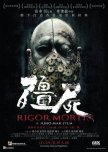
"Never take the mask off"
Rigor Mortis was an homage to the Mr. Vampire franchise even casting Chin Siu Ho and Anthony Chan as the leads. Director Juno Mak made a stylishly bleak film lacking the humor of other hopping vampire films. A stellar veteran cast helped cover over gaps in the story.Chin Siu Ho is an actor down on his luck and separated from his wife and son. He moves into a dilapidated apartment building with aging tenants. Death is ever near and, in many cases, still lingering. Two Taoist priests, one retired and the other who practices black magic work together and against each other as vengeful ghosts and a hopping vampire terrorize the building. Chin owes Taoist Kau for saving his life and bands together with him to cleanse the evil and put an end to it.
I wasn’t aware this film had any connection to the Mr. Vampire films when it started and officially it didn’t. Chin Siu Ho (MV, VvV, MV1992) walking across the screen was my first clue and Anthony Chan (Four-eyed Taoist MV, MV4) playing a reluctant bespectacled Taoist was another. Chin had cast pics from Mr. Vampire with the late Lam Ching Ying (THE Uni-browed Taoist MV1,2,3, 1992, VvV) and Ricky Hui (MV1) on display. Billy Lau (MV1,2,3,1992,VvV) made a guest appearance as a cook, Chung Fat (MV2 & 4) as the black magic practitioner and finally, Richard Ng (MV3) played a beloved husband. Kara Hui gave a great performance as a widow whose sanity hung by a thread after her husband was involved with a double murder/suicide in their apartment. Pau Hei Ching was brilliant as the dedicated wife who would do anything to bring her deceased husband back. Anything.
The fights were brutal and CGI/wire assisted. Chin Siu Ho practiced martial arts in real life and even at 50 made some impressive moves. The jiangshi went from graceful slow-mo hopping with a wind machine to rapidly crawling up walls. The two malevolent ghosts were creepy as they floated about and possessed the living and the dead. Juno Mak created this world primarily in tombstone grays and muted tones , saving the bigger pops of color for rooms lit up in red or puddles of blood. The film was quite stylishly filmed for a low budget horror flick.
For true horror connoisseurs this movie would be tame. For fraidy cats like me, I had to turn my head a couple of times although I did not miss the slapstick humor often associated with hopping vampire films. The cast gave excellent performances. The gloomy apartment setting offered all the hope of a cemetery where the people didn't realize they were dead. The biggest drawback for me was Chin Siu Ho’s character not having a proper backstory and the epilogue. The epilogue may have actually given meaning to the title, but I found it disappointing. Whether it was the director’s way of trying to be clever or the censors stepped in, it came across as mundane after the thrilling battles. Still, it was a pleasure to have much of the gang back together (RIP LCY!) which caused me to give this film a ratings’ bump.
"In this business, no one gets a happy ending."
30 October 2024
Trigger warnings: Child death, insects, gore, suicides, sexual assault
Was this review helpful to you?

Didn't make me wax poetically about it
Princess from the Moon told an updated version of the thousand-year-old story, “The Tale of the Bamboo Cutter.” A supernatural “princess”, a sea monster, and UFO should have made for an exciting tale, but connecting to the characters was more difficult than I thought it would be.A mother and father are grieving the loss of their five-year-old daughter when a bright light and explosion near their daughter’s grave draws their attention. The husband runs into the forest, not only concerned about Kaya’s grave but also to put out any fires in the bamboo forest, the source of his income. He finds a small pod that breaks open and reveals a baby, a baby that ages into a five-year-old in seconds. His wife immediately accepts the blue-eyed version of Kaya as a gift from heaven. When Kaya rapidly turns into a young woman, they decide to move away. Their traveling money is aided by the pod which turned out to be pure gold. Soon Kaya’s beauty is the talk of the town and suitors are knocking at the door. What will happen when her people decide it’s time for her to return home?
This story is right up my alley. I love fairytales, fantasy, and kaiju. Not even a guest appearance by Manda could pull me into this one. It didn’t help that the movie was either badly degraded or shot in a gauzy style which distanced me from the story. Instead of giving it an ethereal appearance it was like struggling to see through fog. Kaya came across as detached which didn’t endear me to her. Her love interest was lumped in with two other suitors and an interested emperor. The impossible tasks Kaya assigned them to test their sincerity revealed a lack of integrity in most of the noblemen. “Men trade honesty for an easy life.”
One of my favorite actors, Mifune Toshiro, played the reluctant and then committed father. “Her joy and sorrow are mine now.” Wakao Ayako made the mother’s grief at the loss of a child palpable as well as her joy at heaven providing her another daughter to love. Though beautiful, Sawaguchi Yasuko’s portrayal of Kaya/Princess Kaguya came across as stiff. Despite so much of the story revolving around her, I never emotionally connected with her character. The blind Akeno played by Odaka Megumi gave a more nuanced performance.
Even through the fogged-up lens, the scenery was striking, especially the bamboo forest. The special effects, however, were rudimentary for the most part. The sea dragon did remind me of Manda and with the movie coming from Toho it could have been. The final scenes looked straight out of 1977’s Close Encounters of the Third Kind though I give them props for doing a satisfying job on the space craft. They got their money’s worth as the ship was shown from nearly every angle quite lovingly. Throughout the film the soundtrack was delicate and unobtrusive. Then inexplicably Peter Cetera sang the closing song over the credits. He was everywhere in 1987, also singing the theme song for Karate Kid 2 (1986). Maybe he was in the neighborhood.
Princess from the Moon was a delightful fairytale that missed opportunities to engage this viewer on a deeper level. The second half was stronger than the tepid first half. I did enjoy the concept of a moon maiden growing up with Earthling parents and falling in love with an Earthman. I wouldn’t want to dissuade anyone from watching Princess from the Moon, it’s worth giving a try. For me it faltered on the emotional front for instead of being moved by the tidal tug between celestial homes for Kaya, I found myself reminiscing about Sokka and Zuko’s conversation from The Last Airbender, “My girlfriend turned into the moon.” “That’s rough, buddy.”
28 October 2024
Was this review helpful to you?
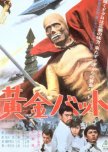
Battastically ridiculous!
The Golden Bat was a film with aliens, a rogue planet, laser weapons, a spaceship shaped like a shark, and a superhero golden mummy with a serious overbite. The science was laughable. The costumes were dreadful. And this was 70 minutes of silly fun.A secret U.N. space institute has discovered that the planet Icarus is on a collision course with Earth. The rogue planet is being assisted by Nazo “Master of the Universe” who wants to be rid of Earthlings. At the institute, Dr. Pearl is assisted by the studly Dr. Yamatone and Yamatone’s boy wonder, Akira. Pearl has built a laser cannon capable of destroying Icarus but it lacks a rare mineral. Fortunately for Team Earth, one of their spaceships has crashed on an uncharted island. When the team goes to investigate, they come across a sarcophagus with a mummy inside dressed in gold lame. Holy coincidences Batman, the mummy is holding the mineral they need to save the planet! Turns out this risen island is part of Atlantis. The tomb directions read, “Ten millennia from now mankind will face a crisis. Open this sarcophagus and I, the Golden Bat, will awaken from my long sleep to fight by your side. Pour a drop of water on me.” Pearl’s granddaughter obliges and the Golden Bat comes to life. All Emily has to do is call his name and he will appear. Team Earth will need all the help they can get with a planet barreling down on them and Nazo’s minions attacking them from all sides.
If you have ever watched an old live action Saturday morning show for kids, this would be similar---albeit with more dead bodies. Apparently, the Golden Bat is one of the earliest, if not the earliest superhero dating back to 1930. This GB was invulnerable, carried a laser shooting baton, could fly and had a maniacal laugh. The evil Nazo’s costume looked like a big mouse with four eyes and a mechanical claw for one hand. He had three high level minions-Jackal, Keloid, and Piranha. Nazo’s spaceship was a giant drill shaped monstrosity while his cruising around ship was built like a shark. Sonny Chiba played a bearded scientist who spent most of his time shooting his laser handgun at aliens and wondering if his career was what was being destroyed.
The Golden Bat was not a high-quality production and the science was scarily bad. But it was so ridiculous that it was funny. In order to enjoy this movie, you will need an extremely high cheese threshold. Like Icarus high. Or be high. Graded on a curve.
24 October 2024
Was this review helpful to you?

"Behold I will make a havoc in the Heavenly Palace!"
Rescue the Earth aka Earth Rescue Day took the old trope of aliens taking over the Earth and combined it with a little Monkey King magic. The mischievous god never made an appearance but devotee Mo Fei managed to embody some of the simian’s better qualities.The Earth has been devastated and overtaken by an alien called Giant Kun who orbits the sky. Smaller spider-like creatures called Kunzis scavenge the land and anyone who dares to come above ground. Humanity has made their homes safely below ground in modern cities. Mo Fei is a Flyman in his 20’s who goes to the surface to find objects of worth to sell below. He owes his friend, Sha Sha, money. She tags along when he tries to sell items to Boss Zhu who is not happy to see him. Mo Fei and Sha Sha end up on the run from Boss Zhu above ground in their flying vehicles when both are attacked by the Kunzis. Mo Fei rescues Boss Zhu and the civilians find themselves in turn rescued from a herd of Kunzis by the Black Falcon Squad. The squad and Flymen end up on a dangerous mission through Kunzi infested land in order to arm a weapon that might destroy Giant Kun before she reproduces and ends humanity for all time.
Rescue the Earth had some really good creatures. Although Giant Kun looked suspiciously like the Harbulary battery eating Abilisk from Guardians of the Galaxy 2. If spiders make you squeamish the hordes of arachnid inspired Kunzis with long spiky tongues may not be for you. While the creatures were properly creepy, the flying car chases came across as very low quality CGI.
Liu Jian Yu as the Wukong inspired Mo Fei had an impish smile and Monkey King hairdo. There was a nice bit to tie it all together at the end. Wang Zi Jia as his gal pal Sha Sha was the mechanic who had to run around on the snow-covered ground in her Daisy Dukes cut-off jean shorts. The writers worked hard to make the four brave soldiers have their own personalities. Capt. Li had a secret related to Mo Fei that tied him to the young man. Different characters had to make the ultimate sacrifice for the greater good and while it didn’t bring tears, they weren’t complete strangers.
Rescue the Earth had some clunky dialogue and even clunkier science but it did have an interesting premise and characters. The film was thankfully short and kept the action going non-stop. The final solution didn’t make any sense but it was done in Wukong style which made it worthwhile for me. If you can handle cheesy dialogue and don’t mind absurd science it’s a diverting 90 minutes of action and creepy crawlers.
21 October 2024
Triggers-Spiderish creatures
Was this review helpful to you?
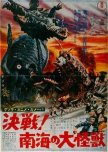
The real seafood wars!
A space probe to Jupiter returned home with glittering aliens who created Seafood Kaiju in order to take over the world in Space Amoeba aka Yog, Monster from Space. An intrepid reporter, a biologist, and a resort developer converge on a pristine island destined to become a luxury resort site. That is, if the native islanders and newly created monsters agree to sign the contracts.Reporter Kudo Taro sees the lost Jupiter probe, Helios 7, parachuting to Earth while he is on an airplane. No one believes him and he is laughed out of the editor’s office. Hoshino Ayako who works for a resort developer asks him to take pictures of a remote island for their project. At first, he’s not interested but then his friend, Dr. Mida Kyoichi tells him he believes monsters might be inhabiting the island. Kudo can smell a buck to be made and agrees. A shady character named Obata tags along on the ship and joins the group even after the monster has already killed a worker on the island. The islanders believe the newcomers are angering Gezora, a giant octopus like creature, but Gezora seems generally pissed off about any two-legged creatures on the island. It’s not long before everyone understands that they are on their own with no way off the island and no way to contact the outside world, with a giant cephalopod out for blood.
This was Honda Ishiro’s first kaiju movie without special effects master Tsuburaya Eiji who died in 1970. Aside from a few random wires through the years, I noticed more in this film than the others combined. Of course, controlling eight legs on land is tough. There were two giant crabs-Ganimes, and a big turtle not named Gamera as well. The overall looks of the kaiju were good for the time period. If you have a bat phobia there were numerous alive and unalive bats in the last third of the film. This film got something right that many of these creature features did not. The monsters showed up early and often instead of being special guest stars in their own movies.
The actors were better than usual, with the exception of the female lead who was never called by name. I kept thinking Kudo would say, “Ayako, stop falling down!” or “Ayako, stop screaming and alerting the monster to our location!” There was never even a proper introduction. The lone island woman, Saki, had her name called out numerous times. Even characters with bit parts had their names vocalized, all but poor Ayako. At least they gave her a name in the cast list. Have I belabored that point? Probably. Lol
Space Amoeba took a different angle on the kaiju genre by having microscopic glittering space aliens take over sea creatures and even humans in their world domination goal. The humans had to survive long enough to work together to discover the aliens’ weakness. They also had a little assist from Mother Nature and a selfless soul. If you enjoy old kaiju films, this is one to try.
19 October 2024
Was this review helpful to you?
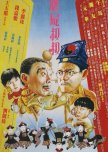
That's not a sword. Now that's a sword!
Lam Ching Ying wasn’t available for this sequel so Mr. Vampire 4 had to find two priests to take his place! Wu Ma joined the hopping fun alongside Anthony Chan’s Four-eyed Taoist. There were jiangshi and one Big Bad vampire for the boys to deal with.Buddhist priest Yi Yu returns home with Ching Ching, a female disciple. Chia Le is a disciple of the Four-eyed Taoist but respects Yi Yu. Chia Le and Ching Ching get off on the wrong foot when Chia Le mistakes her for a boy. Their misunderstanding can’t hold a candle to the childish displays by their elders who torment each other and even have a food fight. The two older men have to set aside their petty rivalry and work together when a vampire is being transported to the capital and breaks out of his traveling coffin during a lightning storm.
Lam Ching Ying’s wise unibrowed character would have had no place in this film. It’s a wonder the vampire was ever subdued with these two frenemies on the job. Wu Ma and Anthony Chan made the most of their roles as they fought each other and then the undead. Ching Ching was a more adept female character than in previous sequels making her a welcome addition. Chin Kar Lok took over his older brother’s (Chin Siu Ho) role as the bumbling Taoist disciple. His kung fu and stunt abilities were fun to watch as he was quite acrobatic. Pauline Wong returned in a guest role as a fox demon who tried to seduce the Four-eyed Taoist. Cheung Wing Cheung played a hopping vampire in Mr. Vampire 2 and played the Big Bad vampire here.
Except for a conga line of hopping vampires who also played limbo, the first 47 minutes was devoted to slapstick comedy with the two competing priests. As someone who has a low tolerance for it, those minutes were slower than a jiangshi hopping through knee deep mud. Once the Big Bad took the stage, the action picked up as well as my interest. There was still plenty of comedy, this was not a scary movie. At one point Four Eyes kept coming out with bigger and bigger swords compared to Yi Yu’s. One thing that did not age well was Yuen Wah’s gay eunuch as the role was played strictly for laughs.
Mr. Vampire 4 was comparable in quality to most of the other sequels in this franchise. The fights were well-choreographed and there were plenty of vampires both of the hopping and non-hopping varieties. Most of all, Wu Ma is always welcome on my screen even if I have to watch him in a food fight. (Graded on a ratings curve)
18 October 2024
Trigger warning: Snakes and one decapitation
Was this review helpful to you?

Monstrous and not in the good way
Monsters was a cheap, confusing film which wouldn’t have been a bad thing if it had been funny or scary. Five people ended up in a monster prison that was sealed in four dimensions but wasn’t impregnable. The ancient creators were super geniuses but forgot about solar eclipses which caused the singularity solar space time quantum magnetic black hole multiverse prison to glitch.Long before humans crawled down from the trees, giants ruled the Earth. Everything was hunky dory until an underground explosion spewed up lethal monsters that ate everything in their path. The giants decided to leave Earth but eleven warriors stayed behind and caged the monsters. A gazillion years later Gao Fei and her sidekick Su Jun Bao race to the site where her sister, Gao Wei, disappeared a year earlier during a solar eclipse. As luck would have it another eclipse is about to begin. Fei is ready to jump through the newly formed ripples when Zhang Mu Sheng drops in wielding a knife and attacks Fei. Why you ask? Who knows. Jun Bao is accidentally knocked into the portal. When Mu Sheng refuses to relent Fei bounces both of them through the portal before it closes. An observer, Ayo Sayi, finds her way through the portal as well. Hiding in the deep forest is a monster who has a Black Canary cry that disables its prey before it attacks. As the group wanders through the woods, they keep happening upon other people who look just like them, both living and dead. Fei just wants to survive, find her sister, and get everyone safely home.
The creators failed at world building on multiple levels which dragged this movie down. It could have been a translation problem but the characters’ efforts to explain what was going on were just confusing word salads of scientific terms. It seemed liked the creators used the whole black hole singularity multiverse quantum physics explanation so that they could kill off character without having to sacrifice the main characters. How did beings intelligent enough to build a fourth-dimension prison powered by the sun not take into account solar eclipses? Total solar eclipses happen around every 18 months. And how in the heck would a solar eclipse be any more problematic than nighttime? A solar eclipse doesn’t block the sun for the whole planet. The nocturnal beasts didn’t seem to have any problem coming out in the daytime either.
Along with world building, the characters were a mess. Gao Fei knew her sister disappeared through a mysterious portal. She planned to go through it as well when it appeared again. She brought no food, water, weapon, or backpack. To show she was ready for anything she wore a white sports bra instead of a shirt. The Observer in an elaborate costume and wig was not properly attired for traipsing through the forest and fighting off a monster either, although she at least carried a sword. Mu Sheng went from trying to kill Fei to becoming best buddies with her in whiplash fashion. And poor Jun Bao was given a list of scientific terms to rattle off in no particular order. Most of the characters were knocked unconscious at least once. If they survived their ordeal they all needed to schedule CTscans upon return to their world. Quite honestly, my favorite character and the only one I cared about surviving was Master the dog.
Monsters was primarily a singular monster for most of the movie with the kind of CGI you’d expect from this caliber of film. If you enjoy being confused watching confused characters wandering through a singularity solar space time quantum magnetic black hole multiverse monster prison disguised as a wooded forest, this might be something to check out. I told myself if the writers resisted using the most cliched ending for these cheap monster movies I’d give it a .5 bump. It did not receive a .5 ratings bump.
17 October 2024
Was this review helpful to you?

 54
54 195
195 11
11






















